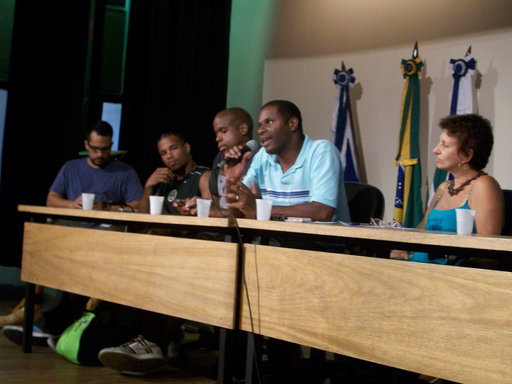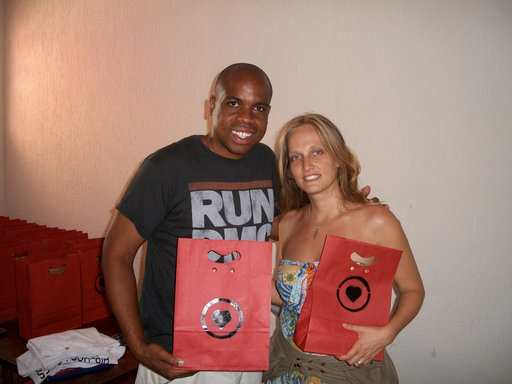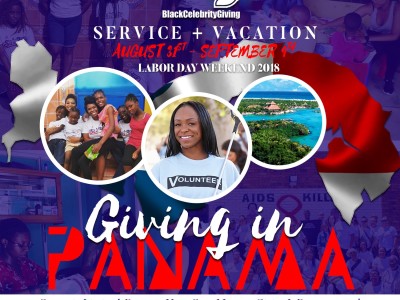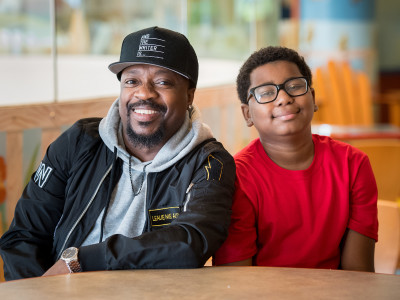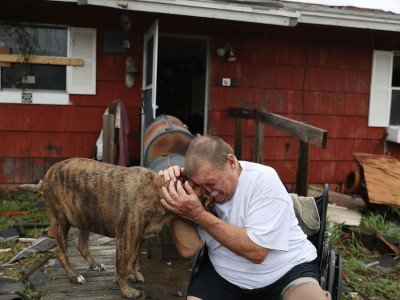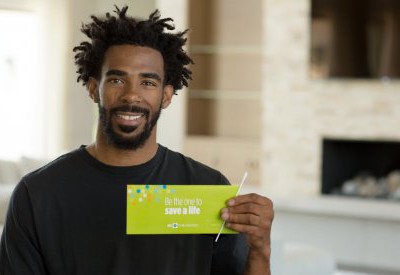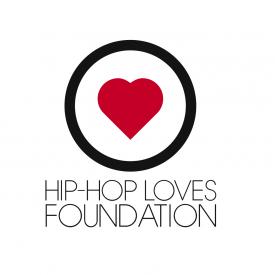
If you let the mainstream media tell it, hip-hop as music and culture is a plague upon the modern world. However, for those that live it, hip-hop is more than just music, it’s a lifestyle that uplifts, empowers, and emboldens as it spreads beyond borders. As co-founder of the Hip-Hop Loves Foundation, this is a message Rene John-Sandy has taken to heart as he teaches the next global generation self-empowerment through hip-hop.
BCG: First, could you please tell the people your name and your organization?
RJS: My name is Rene John-Sandy the second and I’m the co-founder and executive director of the Hip-Hop Loves Foundation.
BCG: Could you explain what the Hip-Hop Loves Foundation is and what it is about?
RJS: Absolutely, the Hip-Hop Loves Foundation was founded two years ago this December and our mission is to educate and empower the youth using creative workshops from the world of hip-hop. Using break dance, graffiti, production and integrating sports like boxing as well to help all around the world. We started off in Rio, Brazil in 2009 and now we are doing workshops in New York, Los Angeles, Seattle and we’re expanding next year to Africa and also Australia.
BCG: Why such a world view?
RJS: Well, in my experience and hip-hop in general , music connects people no matter what language it is. And even for sports if you look at an event like the world cup, it stops wars. It connects people. So really seeing the impact of what hip-hop has done even if you are from Harlem to Brooklyn to Tallahassee to Paris, there’s our connection. We wanted to connect kids all around the world through hip-hop.
BCG: Isn’t amazing how hip-hop started off as a neighborhood thing, and now it’s a worldwide phenomenon allowing previous unheard people to have a voice?
RJS: Absolutely. It was the voice and pulse of the streets and now it has escalated to be the voice of the world. Even if you look at commercials on TV, 4 out of 5 have some hip-hop connotation or angle. When we started this foundation, we also wanted to show how hip-hop is a tool that can be used in a positive fashion. And we know nothing is perfect, so you have some artists about the drugs and glorification of women and all that but there’s the other side that has always been a positive factor. It’s created jobs and I even know people who learned English through hip-hop. So it’s definitely a positive thing.
BCG: That’s understandable. So how do you use the foundation to spread goodwill?
RJS: Well, as I said we create workshops from all of the pillars of hip-hop and we use them with kids so they can learn to be self-expressive, communicate and just be proud of themselves and educate themselves to it. With these workshops we often use technology to simulcast kids in Harlem with a workshop in Brazil called “Luta Pela Paz” or Fight For Peace in Portuguese and it was pretty dynamic because the kids could see what was going on in a different region. I think it’s very important for kids to know that they can go beyond what’s around them – beyond the block; that there’s a whole world out there for them and to reach for that.
BCG: What kind of feedback or reactions have you been getting about the program?
RJS: We are already have our non-profit status in the United States, but we literally just finished our paperwork to become a non-profit in Brazil to continue our work out there. And we’ve just been getting phenomenal feedback. You would think from a perspective, the kids would get something out of it but even for myself I get a lot out of it just seeing the transformation of the kids. Such as a kid going from coming in shy and can barely say his name out loud to a kid who’s yelling and screaming and just happy and being totally communicative. It’s inspiring to see that.
BCG: How did this project begin?
RJS: This began with myself and co-founder Sebastian Bardin-Greenberg and Bahiyah Robinson. Sebastian’s mother was a photographer and she was one of the first non-Brazilian photographers to take pictures of the favelas which is like the hood or projects in Brazil.
BCG: Like the ones they showed in the movie, “City of God?”
RJS: Yeah, exactly. Brazil has a lot of character and he wanted to do an event in Brazil, a concert. So then we thought about it and said, “why don’t we filp it into something where we can do some good.” So that’s where we came up with the idea for this foundation. Then we sat down and thought, “why just Brazil? Why not take this worldwide?” So, we continued to do this in other places. Then one of the criticisms came to us, “why are you doing all of these other countries but not in the United States?” We said fair point, but we wanted to connect people to see what was outside of the United States. So, we thought about it and said “yeah, we should be doing something in our own homeland as well.” So, that’s why we use technology to connect folks in different countries.
BCG: Obviously, you are very passionate about hip-hop. Where did that begin?
RJS: My background comes from being an artist manager. I’ve worked with Pharoahe Monch and underground artists like The Complex and I started an urban lifestyle company called Spit Kicker and did tours with Mos Def, Talib Kweli, Common, Kanye West and Dave Chapelle. So, I’ve always had a passion for hip-hop and how it changes people’s lives and inspires people going all the way back to high school when I was doing promotional parties. Music is just that vibration that makes people enjoy themselves no matter what ethnicity.
BCG: How can people help out with your program?
RJS: They can hit up our website www.hiphoploves.com or if you have any questions or want to help, email me at rene@hiphoploves.com. If you want to leave a donation you can do that on our facebook page (just look up Hip Hop Loves Foundation) as well as on our website. Plus we are on twitter @HipHopLoves.
BCG: What is the next step for the program?
RJS: We just finished up our workshop in Brazil and we’re working on a compilation CD that should be out next year called Hip-Hop Loves Compilation Vol 1 “Hip-Hop 4 Haiti.” We have artists from over 40 countries so far with even more to come and we’re about seven songs in. Once we put it out, the proceeds will go to the Global Syndicate Foundation and our foundation to help with the Haiti relief effort and our workshops.
BCG: Any last minute words?
RJS: Make sure you do something that makes you happy in your life but also reach out to those around you. That’s how we build community in the world which is very important.
Story by: Keith “1st Prophet” Kennedy c/o BCG.com

